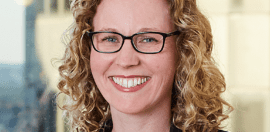Progress and provocations: CSI CEO reflections 2017-2021

Professor Kristy Muir
24 November 2021 at 11:16 am
As the outgoing CEO of the Centre for Social Impact, Professor Kristy Muir, reflects on the positive and negative changes over the past five years, and what the future holds.
“We are in a space without a map… it feels like we are on shifting ground, where old habits and old scenarios no longer apply… It is frightening. It is also a place of potential transformation.” Joanna Macy
When I took the reins of CEO at the Centre for Social Impact back in January 2017, I never could have imagined what the next five years were going to look like. The ground has constantly been shifting, creating waves of change that have significantly affected society, both here and around the world. We have transformed in ways that we never could have imagined and in such a way that we can never go back.
We have witnessed a monumental mix of progress and despair. In 2017 the first #MeToo hashtag was tweeted, and a movement swelled. Before the year was out, Australia had happily voted for marriage equality. In 2018 women finally got the right to drive in Saudi Arabia. In 2019 students around the world participated in global climate strikes. And in the summer of 2019-20 here in Australia, we faced and rallied behind communities affected by devastating bushfires.
By early 2020 we were, and still are, consumed by a global pandemic. By mid-2020 the Black Lives Matter movement had spread throughout the world, including with a stark and shameful reality that 20 years on from the 1991 Royal Commission into Aboriginal Deaths in Custody, Australia had another 474 deaths.
Later in 2020 and early 2021, the federal government did something that they had previously said wasn’t possible – they lifted thousands of adults, families, and children out of poverty. The poverty rate of single parent households, for example, dropped from 20.2 per cent to 7.6 per cent.
It was a telling moment of how, when we have the collective will, we can address chronic social issues. But by the end of March 2021, COVID supplements ceased, and the same government returned thousands of children and adults back below the poverty line.
There have also been some significant shifts in power over this time too. While power imbalances continue to prevail, ‘new power’ has been rising: think crowdfunding, social movements like #MeToo and climate strikes; shifts in how and what people consume; where people invest and the rise of ESG (Environmental, Social and Governance) as a guiding principle; who people are willing to work for and the increasing expectation of a social and moral licence to operate.
We have also made progress with lived experience by more often putting people “at the centre” and seeking and listening to voices of lived experience. But we still have a long way to go. This has been so horrifically evidenced in the many other truths that have also been unravelled over the last five years: the institutional abuse of our children; the damning quality of our aged care system; the misconduct in our financial services sector and the violence, abuse and neglect of people with a disability.
There is great power in truth telling. But whose truth matters, and at what time? Who is courageous enough to face the truth – especially when they make us uncomfortable or when they contradict what we know and feel? How do people who need to be heard find the places and spaces to do so and the courage to tell us what we need to hear?
I am a student of history. And history tells me we are in a time where the world needs us all to ask different questions, to seek different perspectives, to listen deeply – with an open mind and heart, to have constructive dialogues and be open to other truths (as uncomfortable as they might be).
So often “our truth” is (understandably) a reflection of us, rather than the world around us. Who else’s perspectives do we need to not just seek, but listen to and be empathetic about? And how do we have some difficult conversations around provocative truth telling statements?
Here are five provocations around people, poverty, power, place, and purpose to kick us off:
- People don’t exist in isolation and yet we often fund and run programs, policies and interventions as if they do;
- Poverty is a choice society makes;
- Power imbalances continue to prevent progress because knowledge is privileged over life experiences;
- Place is often forgotten, ignored or sacrificed, but it has always mattered for connection, belonging and impact;
- Purpose isn’t embedded deeply enough into our listening, empathy, words and actions.
The point of these provocations is less about whether you do or don’t agree with them. But rather, to enable us to have constructive dialogues, to understand different perspectives and where these come from, to confront different truths that might not be the stories we have been telling ourselves, and to make collective social progress.
The 92-year-old author and teacher, Joanna Macy’s wise appeal to all of us is to face truth telling with attention and acceptance. She warns, as uncomfortable as this might be, “Do not look away. Do not avert your gaze. Do not turn aside.”
What might happen if we hold our gaze? What might happen if we really look? What new truths will we find? There is much truth telling, listening, and acting left to do. We live in strange and uncertain times and, therefore, maybe it’s time to embrace transformation for social good. Maybe it’s time, as Priya Parker recommends, to “listen deeply enough to be changed by what you hear.”
The landscape has shifted. The “old habits and old scenarios no longer apply”. While “this is frightening”, as Macy wisely reminds us, “it is also a place of potential transformation”. This will not be easy and the onus is on all of us. How we each create the spaces, the pauses, and the empathy to have constructive dialogues and to listen to and act on truth telling (especially when we do not agree with each other) is our challenge.
But I think we’re ready for it and we’re up for it. And, if we can achieve this, imagine the power of transformation over the next five years.








